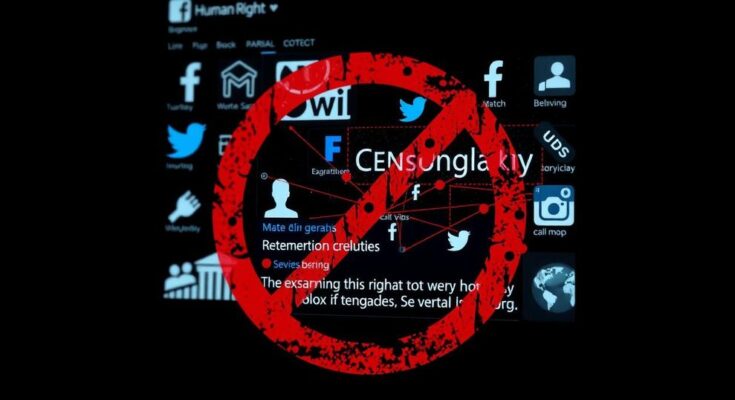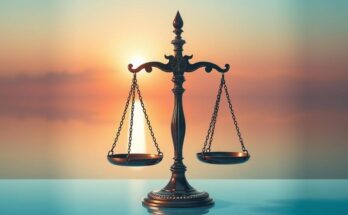TikTok has come under fire for deleting videos highlighting Uyghur human rights abuses, as experienced by Uyghur student Nefise Oguz, whose video discussing genocide was removed. Many Uyghurs believe TikTok is suppressing content critical of the Chinese government, revealing a troubling trend of censorship that affects their advocacy efforts online.
In October 2023, Nefise Oguz, a Uyghur student studying in Istanbul, faced a disheartening reality after posting a video on TikTok discussing the genocide of Uyghurs in China alongside Turkish nationalist leader Doğu Perinçek. The following day, TikTok deleted her video, citing community guideline violations. This incident sparked outrage among Uyghurs who believe the platform is systematically censoring content that highlights human rights abuses in Xinjiang, the region where approximately 12 million mostly Muslim Uyghurs reside. Many Uyghurs in exile allege a persistent trend of TikTok deleting videos that expose China’s oppression, further entrenching the belief that the platform prioritizes the Chinese Communist Party’s narratives. Despite TikTok’s assurances that it operates independently from the Chinese government, critics argue that the app’s actions reflect a deeper suppression of Uyghur identity and rights. Oguz lamented that her voice, and the reality of her people’s suffering, were silenced by a platform designed for free expression. Abdushukur Abduresit, a cloud technology consultant, suggests the content deletion is in line with ByteDance’s policies, which discourage criticism of the Chinese government. The censorship extends beyond video removals. Uyghurs have found themselves banned from using social media tools altogether in Xinjiang, with punitive measures enacted against those who flout these restrictions. Studies have revealed that TikTok’s algorithms favor Chinese governmental narratives while suppressing dissenting voices. Numerous cases echo Oguz’s experience, such as Abdurahman Mamat’s video deletions two years prior, where critiques of the Uyghur crisis were similarly dismissed under vague community guidelines. Activist Burhan Uluyol had his account suspended multiple times, highlighting how even benign content is subject to premature censoring once it is traced back to a Uyghur origin. This systematic silencing serves not just as a reminder of personal loss but of an ongoing struggle for acknowledgment and truth. Controversy reignited when Feroza Aziz’s viral TikTok, addressing Uyghur repression beneath the guise of a beauty tutorial, led to her account being blocked for purportedly infringing on policies surrounding terrorism. This prompted greater scrutiny of TikTok’s regulatory practices as it distinguishes content within a tense political landscape while its own executives deny any governmental influence over its operations. Despite these challenges, Oguz continues to advocate for her uncle, Alim Abdukerim, who faced an unjust arrest in 2017. Although her recent appeals have met with repeated censorship, Oguz remains undeterred, vowing to keep seeking justice in the face of overwhelming opposition. As she poignantly stated, “China deletes anything that doesn’t benefit them.” The tale of silenced voices in the digital age illuminates a broader struggle against erasure, and the indomitable spirit of those fighting for their truths echoes far beyond the confines of social media.
The Uyghur community faces extensive human rights abuses, particularly in the Xinjiang region of China, where ongoing reports document the systematic oppression, detention of over a million people, and cultural erasure of this Muslim minority. As many Uyghurs seek to advocate for their rights through social media platforms like TikTok, they encounter direct censorship and account suspensions. This persistent wave of online silencing contrasts sharply with the purpose of these platforms, which are designed for open expression, thereby igniting concern over the manipulation of content by companies that may be beholden to governmental pressures.
The struggles faced by Uyghurs on platforms like TikTok highlight the ongoing battle for visibility and acknowledgment amidst a backdrop of systematic oppression. Instances like those of Nefise Oguz reflect a deep-seated tension between freedom of expression and state-sponsored censorship. As these stories of censorship surface, they serve as a poignant reminder of the broader implications of systemic silencing in the digital age, prompting a necessary dialogue about the responsibilities of social media platforms in amplifying or stifling marginalized voices.
Original Source: www.rfa.org



